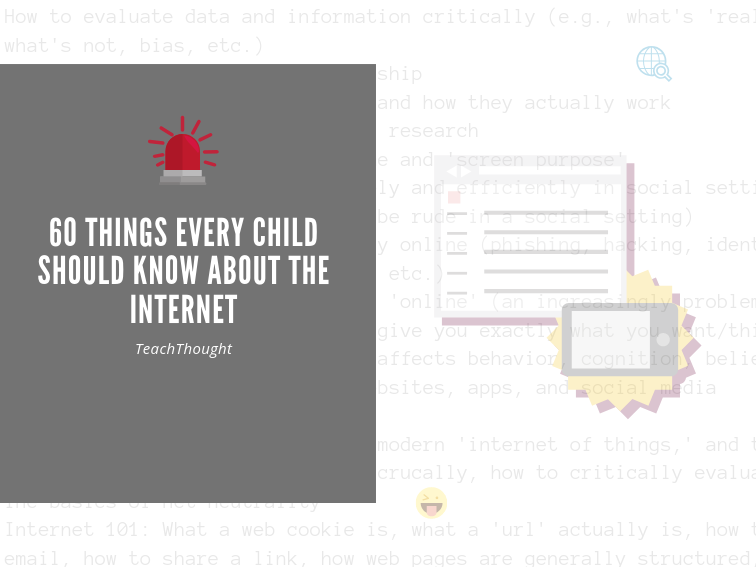When The WiFi Goes Out: Responding When Students Can’t
contributed by Lianne Johnston
Recently, our middle school sports team played a game far away.
The coach suggested the students bring their backpacks to do homework on the long bus ride. Not surprisingly, no one got any homework done—at all. The students tried, but they needed the internet to access their homework, and school buses don’t offer Wifi (yet).
Whether it’s a Google Doc, Khan Academy video or other technological tool, the students need to be online to read, write, watch, view, and more. In an era when parents and teachers chastise kids for spending too much time indoors with media, homework requires students to be inside with media, as does the primary source of social interaction for many children (social media).
The entire idea of a flipped classroom, a tool upon which many classrooms are pivoting, is dead-in-the-water without this kind of access.
When modern technological tools are introduced and celebrated, this scenario gets less thinking than it might. Beyond buses, the quandary extends to interruptions in service, and students without service at home. Not everyone has the internet. And even for those that do, students lose their device, get it stolen, get grounded off of it, or have their batteries die.
But they need access restored immediately to stay up-to-date with schoolwork. If the family trip takes children to a wilderness camp without Wifi for a whole weekend, the students can’t complete their homework by the stream or inside the tent, and making up a weekend’s worth of assignments is daunting. (This assumes that students *should* be ‘completing assignments’ on their this camping trip.)
Identifying the predicament raises the question, how should schools, teachers, parents and students respond?
3 Basic Approaches To Mitigating A Lack Of Student WiFi
1. Bank It!
Acknowledging the possibility of these circumstances, teachers might create an old-fashioned assignment or two that students can do if they lack internet access. Since blaming disruption of service for incomplete assignments might sound suspicious, teachers can provide alternatives that students must complete instead.
The work can be materials the teacher wants to cover—perhaps extra stuff that doesn’t fit into the normal curriculum days—or lessons that take knowledge further—primary documents, a creative option, the development of a class-opener. It’s easy to imagine handing out a vocabulary activity that gives students extra opportunities to work with common words or phrases like literary terms. Or problem sets from a list students keep in the course notebook or journal.
2. Standards
As above, what if teachers identified a question that students could turn to and address if they suffered a lack of internet. Phrases like essential questions and spiral curriculum spring to mind at this suggestion.
Are there ideas in courses that teachers can have students continue to return to and gain skills or knowledge?
More and more experts emphasize the need to use writing as a means to think and not just as a final product. They recommend writing for math in addition to science and the humanities. A question for students to revisit and write on as they travel through a course might prove useful beyond the access predicament. It could build to intermittent and culminating assessments.
In World History, students could create an ongoing cartoon strip with captions that chronicles their growing knowledge. In science, students could add entries to a notebook, repeatedly answering the age-old question: why do I have to learn this knowledge?
They might even use pen and paper.
3. Phone It In
Smart phones don’t need Wifi to send texts and/or emails, so teachers can instruct students to send a message as soon as they realize the situation. In addition to fostering communication skills, the teacher might be able to communicate some easy-to-explain assignments like readings or short writing pieces.
Likewise, many students use the camera on their smart phones to record notes from a peer or from the board. What if a peer took a picture of the web materials or exercises and sent the images to the student who lacked an internet connection? Obviously this option is limited, and the phone doesn’t lend itself to a wide range of assignments. But even if the student can’t accomplish the work via phone, at least familiarity with the task gains ground toward completing it—and the teacher knows about the quandary ahead of time, and the communication line is unbroken.
I remember a JV volleyball game far away during high school. Afterwards, I had to wait for my sister who played on varsity. I needed to get my English homework done. So I went outside, sat under a tree and read the book.
Those were the days.
